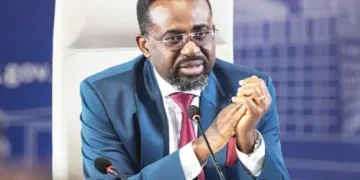ORAL: Gov’t Likely to Recover Only 12.5% of Alleged $21 Billion Loot, Says Bright Simons
Ghana’s Attorney General is unlikely to recover more than 12.5% ($2.6 billion) of the $21 billion estimated to have been lost to financial mismanagement, according to Bright Simons, Vice President of the policy think tank IMANI Ghana.
Simons argues that much of the alleged misappropriation flagged by the ORAL Committee stems from poor fiscal policy choices rather than recoverable funds hidden in accounts, making large-scale recovery unrealistic.
Barriers to Recovery
Outlining the challenges, Simons pointed to several categories of expenditure that complicate efforts to retrieve lost funds:
- Monetary Policy Decisions: The $4.5 billion allegedly printed by the Bank of Ghana was already injected into the economy, contributing to inflation rather than accumulating in recoverable accounts.
- Overstated Claims: The $4.5 billion attributed to fraud in the National Service Scheme represents nearly half of Ghana’s annual budget—an implausible figure to have been misappropriated within the period under review.
- Opaque Government Spending: Payments for presidential jet hires were processed through classified accounts, limiting transparency and the potential for punitive audits.
- Legitimate Expenditure Allocations: The $1.5 billion in COVID-19 relief funds was approved through appropriation, reducing the likelihood of legal recovery.
Given these constraints, Mr Simons argues that even a $2.6 billion recovery target is ambitious.
Recommendations to Maximise Recovery
To improve the effectiveness of the ORAL, Mr Simons suggests:
- Stricter Oversight of the Attorney General to ensure tangible progress in asset recovery.
- Cost-Benefit Analysis of ORAL Enforcement, warning that if $26 million is spent on investigations and only $2.6 million is recovered, the initiative would be a net loss.
- Enhanced Investigative and Prosecution Capacity to strengthen legal proceedings.
- An End to Perpetual State Financial Schemes, arguing that much of the so-called “loot” has been embedded in ongoing government programmes that remain operational.
He concludes that unless fundamental reforms are implemented, Gov’t may end up chasing “phantom loot” rather than making meaningful recoveries.








